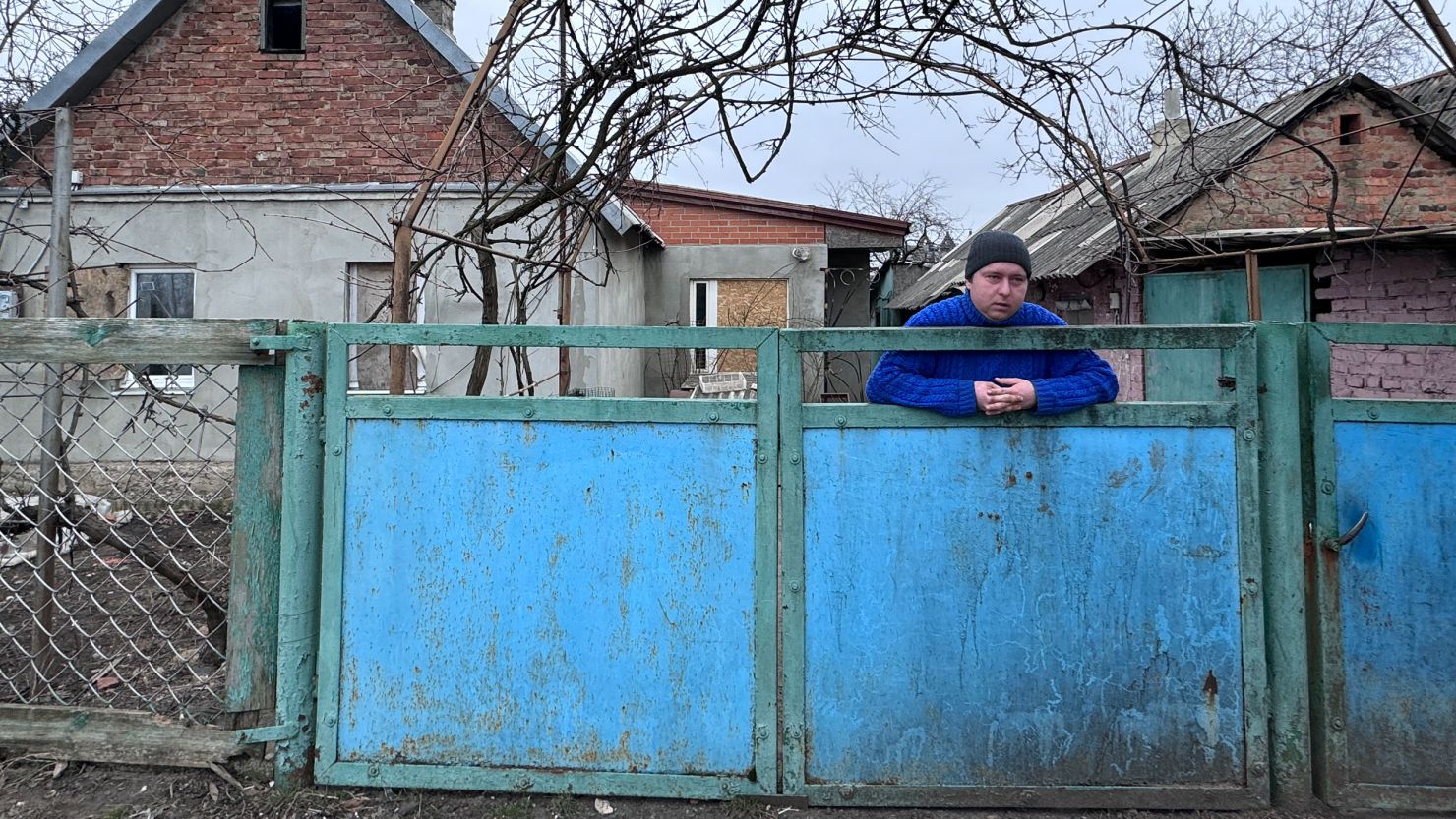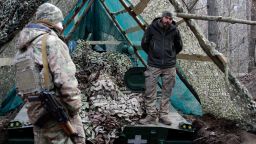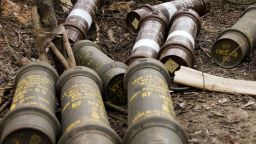A T-64 tank sits hidden in a trench just outside of Chasiv Yar, surrounded by the cacophony of Russian forces trying to take Ivanivske, a tiny village on the outskirts of Bakhmut, eastern Ukraine.
Yet its gun was not fired once during a 72-hour period, an hour of which CNN witnessed on a visit. The reason? A lack of the Soviet-era shells it uses. Instead, Ukrainian soldiers say they must sit and await an order to join the fight around them.
The unit’s commander, Yaroslav, said he understood the war in Ukraine might feel “very far away” to Western politicians. “But this war is happening in my country. I don’t know … imagine the war coming to your doorstep. Would you hesitate then? We need those weapons. The enemy is much stronger. Without their help we will not survive, will not stand as a nation, as a country. We will just be destroyed.”
The noise in the trench where they hide is endless, and the troops call this a “quiet” day. Russian Lancet attack drones have hit their positions in recent weeks. Yaroslav is not optimistic about what happens if the $60 billion package of military aid currently stalled in the United States Congress does not come.
“I think we all going to die,” Yaroslav said. “Everybody who is here. We will be no more. This will not be just a European problem. The Russians will advance on Europe.”
In another area nearby, soldiers manning a US-donated Paladin artillery unit were less fatalistic, as they retained a ready supply of US shells. They fired twice when CNN visited, but the skyline around them was peppered by constant explosions from Russian-launched weaponry, and their commander, Oleksandr, expressed reservations about the fight ahead.
“We have issues, a lack of ammunition,” he said. “We have enough to work, but try to be more precise to save rounds.” He said the Russian “assault is big and (we) might not have enough ammunition.”
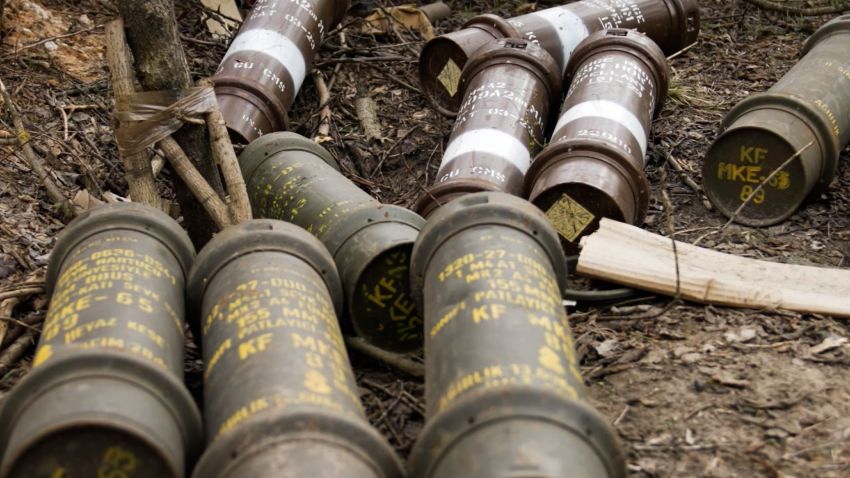
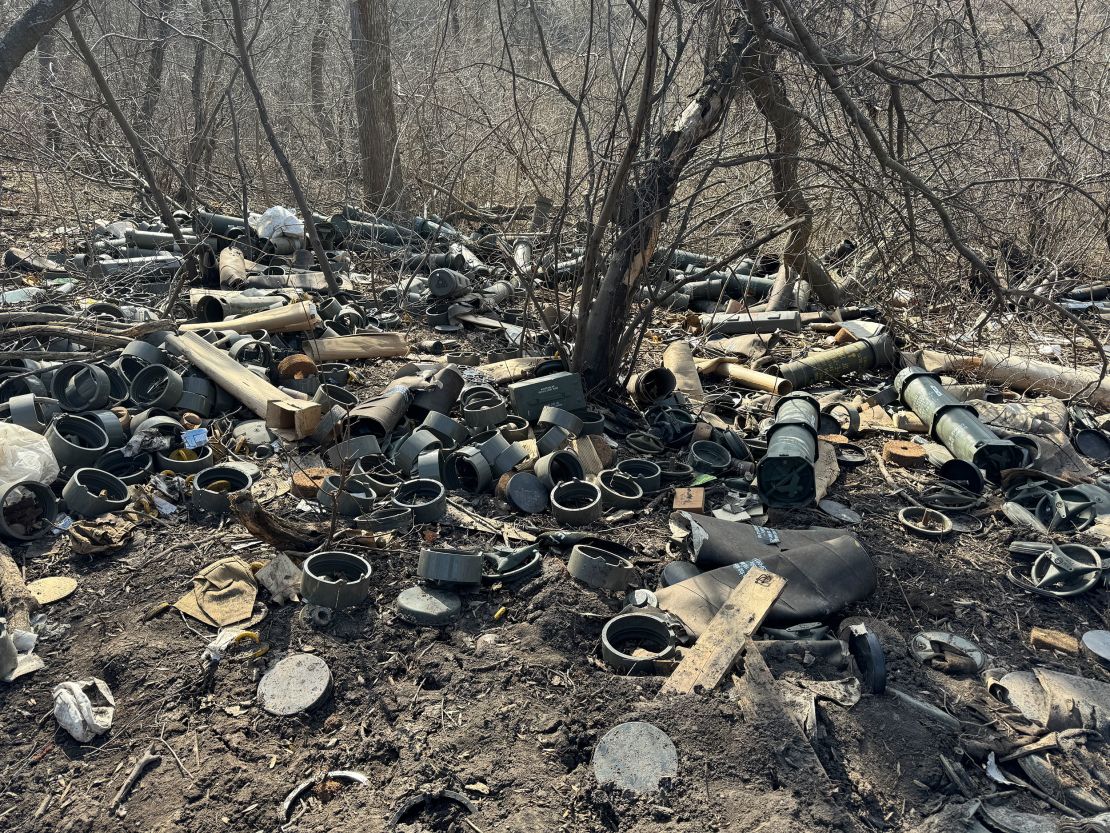
Russian forces appear to have gained momentum across the complex eastern front lines that run from two towns they have captured after months-long brutal battles: Avdiivka, two weeks ago, and Bakhmut last May. While they are claiming some success in Ivanivske, just west of Bakhmut, it is to the west of Avdiivka where Moscow has seen greater progress.
Three villages Russia initially seized - Lastochkyne, Stepove, and Sieverne - hold little significance, with Kyiv claiming their defensive line was always supposed to be further back. Yet that same, new defensive line - through another axis of three villages, Orlivka, Tonenke and Berdychi - has also come under intense Russian assault, with pro-Russian sources claiming a foothold on the edges of each.
The assaults, while incremental in their gains, suggest a wider issue across Ukraine’s front lines, where soldiers have been critical about their leaders’ preparedness to defend territory once the military withdrew from Avdiivka.
“I think it’s our force’s mistake not to prepare normal positions behind Avdiivka,” said one special forces soldier. “If we had prepared positions behind Avdiivka where our infantry could fall back to, we would have held them there for a very long time.”
Another fighter, an American volunteer from Georgia, Garrison Foster, described the equipment crisis in dire terms: “I think this year is going to be the worst year in the war. There’s certain units that… are running out of tanks.”
He expressed fury at the move by the Republican-led Congress to hold up American aid. “It’s indescribable because it’s so ridiculous to me. I mean, the amount of nonsense that’s coming out of the politics of the whole thing is just completely ridiculous. There’s no point in trying to paint this in any sort of light where it’s good for us that Russia takes Ukraine. That’s going to be very bad for us.”
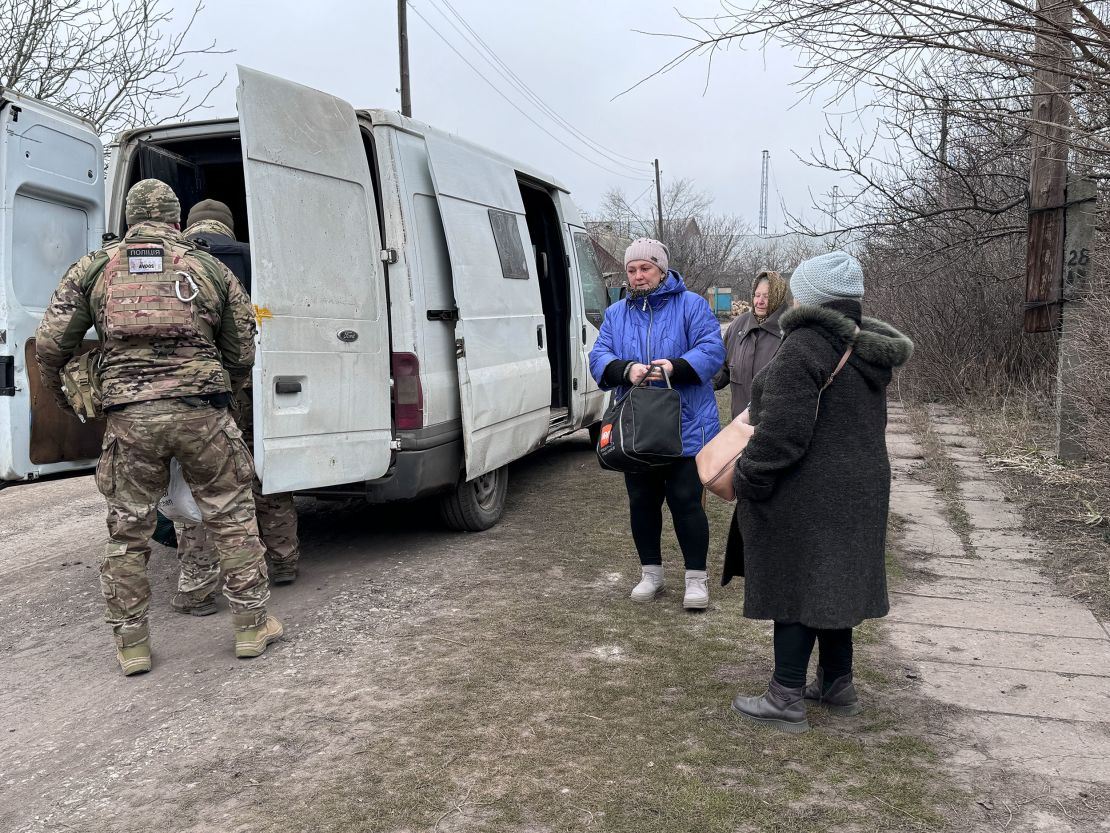
CNN witnessed signs of a furious Russian assault across the front lines around Avdiivka. In the battered village of Ocheretyne, next in Russia’s path after Berdychi, locals seemed unable to leave, or, in the case of Euhene, 32, “sat on their suitcases” ready to flee if the Russians break through.
He said: “We packed the bags yesterday: clothes and essentials. If the situation gets critical… we are friends with the boys (Ukrainian soldiers), they come here for water. I think they will tell us.” He said of the Russian advances: “We didn’t expect it. We thought it would somehow settle, calm down.”
Two doors down was Viktor, who complained of repeatedly fixing holes in his roof from shelling. “I just want the shelling to stop!” he said. He wistfully recalled how Ocheretyne was a prosperous village before the war. “I’m married to my wife for 52 years. And we will be buried together. Right here. Right in that ditch,” he said, pointing to the trench outside. Across the skyline a relentless exchange of artillery fire rang out.
In nearby Zhelanie, several elderly residents had finally decided to flee, and were making use of the “White Angels” evacuation service, run by a special Ukrainian police unit.
Fighting for nearby Avdiivka had persisted since Russia’s first invasion in 2014, but was now too close to ignore. “The house was shaking four times already,” said Valentina, 74. “It’s made of clay and straw. They shell so hard that every time I think that’s it - we are done. The most scary is if those ones come here,” she said of the Russians. “There can be no trust to people whose hands are covered in blood.”
Closer to Bakhmut, in Chasiv Yar, some locals anxiously asked not to be shown on camera, and seemed resigned to — or possibly even welcoming of — a potential Russian advance.
Standing outside an aid distribution point, one man said: “Peace is peace. I want to see my granddaughter. She is in Moscow. My sister is in Kaliningrad. Half of Russia are my relatives. But I’m here alone.
Another woman, who asked to speak anonymously, said Ukrainian soldiers had based themselves near civilians, were drawing Russian fire on the area, and were using up local resources.
“No water, no gas, no power, nothing. When we go for water, there are soldiers getting water too. And they take all the water,” she said.
“They drive straight to the houses where people live. And fire right from the house. They hide behind the civilians’ backs.”
Ukrainian forces have always insisted they try to avoid civilian areas and ask residents to leave.
Regardless of loyalties, the sound of Russia’s advance, and the brutality its forces have meted out elsewhere in occupied Ukraine, grow nearer.


